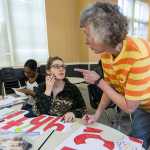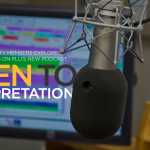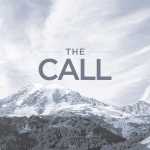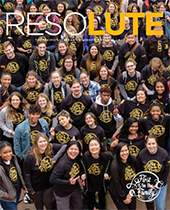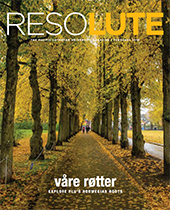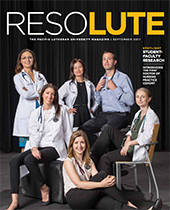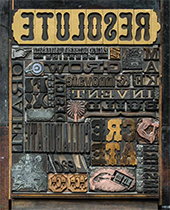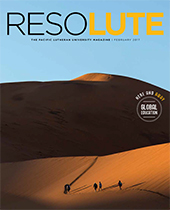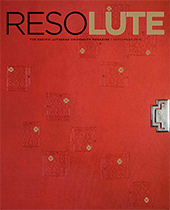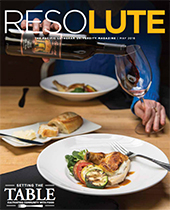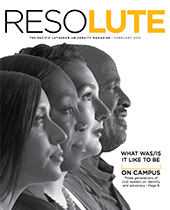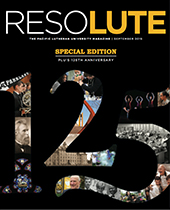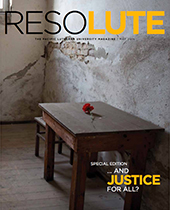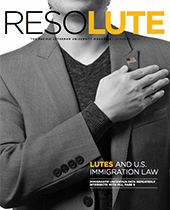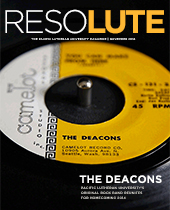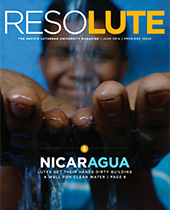WHAT IS/WAS IT LIKE TO BE ASIAN PACIFIC ISLANDER ON CAMPUS?
Leilani Balais ’99
Asian Pacific Islander Club
Lou Vargas ’12
Asian Pacific Islander Club
Matthew Orcilla ’17
Asian Pacific Islander Club
What was/is the PLU climate?

Leilani Balais ’99: The percentage of students of color was very small in the mid to late 1990s. In fact, my high school in Lacey, Washington had a larger percentage than PLU. I never really had to think about my own skin color and Filipino-heritage until I arrived at PLU and realized there weren’t many like me. At that point, it was very scary.
I felt alone, despite being a social person and meeting so many new and friendly people in the first few weeks of school. The late 90s had a particular charge about it due to the passing and implementation of Washington’s Initiative 200 (which sought to prohibit racial and gender preferences by state and local governments). The campus climate changed during my time at PLU because my peers and I chose to change it.
Lou Vargas ’12: When speaking of PLU climate and culture, my memories bring me back to my first-year experience. It was certainly difficult for an immigrant of color like myself to acclimate with my peers who were mostly white. And not just any white — privileged white. The kind of white that didn’t recognize privilege. Their humor was different. Their nuances were different. I was different. I tried to fit in but couldn’t. I tried to play the role of the token person of color. The only trouble was, I wasn’t “American” enough.
Matthew Orcilla ’17: I’m not really sure what the climate was like at the time. I can definitely say that it wasn’t hostile and when we started the club there wasn’t any backlash from anyone in the community.
Why was/is the group needed?
Leilani Balais ’99: Within the first few weeks of school, I received a letter through campus mail inviting me to a meeting to learn more about the Asian Pacific Islander (API) Club. I realized there was no API Club, but rather it was an interest meeting to see who would be interested in starting such a club. I initially objected to joining, but later admitted interest in serving as an officer. In retrospect, all of us there actually wanted to help in some way. I knew then that I wasn’t alone in feeling lonely. We all wanted to belong to something, feel more at home and connect with others who looked similar to ourselves. In turn, we also hoped to be able to educate others about our API heritages, serve our local community and simply have fun as a social club.
Lou Vargas ’12: I very much needed API Club to validate my experience and to prove that I wasn’t the only one who was made to feel different. I needed to be with my like-minded immigrants of color because we shared the same sense of community. We share the same nuances. It was where I felt a sense of belonging and true fellowship. Most importantly, it was where were I got to be the Filipino that I was, and the American I understood myself to be.
Matthew Orcilla ’17: The organization was needed because those who identified as Asian, Pacific Islander or both felt that they needed a community of people that they could identify with. Many of us came from high schools that were very diverse compared to PLU, and it was difficult to adjust to an environment where we were a minority. The club served as a way to help students find a community where they could relate to each other as well as teach any other students about our different backgrounds.
What were/are some of the club’s challenges?
Leilani Balais ’99: The biggest challenge for the club was low membership. Because PLU was a small school with a significantly small population of students of color, the number of API students to recruit was very limited each year. We knew we couldn’t limit membership to just API students. Having non-API students involved was key. We never said no to an opportunity to work with another cultural club because we were all in the same boat. We had very strong ties with other like-minded clubs such as B.L.A.C.K.@PLU, Feminist Student Union, Puentes, Harmony and of course, ASPLU’s Diversity Coalition. We learned from each other, supported each other and became one big family. We respected each other’s missions and goals, but coming together allowed us to be bigger, louder and stronger. Our collective challenge was to change PLU’s campus climate.
Lou Vargas ’12: One of the major challenges for our club was attrition and growth. We couldn’t grow in numbers because there was not a sizeable pool of people to draw from. API students were limited, let alone non-API students who saw value and interest in our distinguished cultures. With very few members, it was even harder to mobilize non-members to participate in most of our activities.
Matthew Orcilla ’17: When we started up the club our first year, we ran into two challenges: gathering members and gathering money. Although we were able to gather a sizable list of interested students, regular members were hard to keep. It is still something that we continually work on and are improving. In terms of gathering funds, we are doing a lot better. We have done many fundraisers to raise the money ourselves and these fundraisers have also been a point of bonding for our members.
What were/are some of the club’s victories?
Leilani Balais ’99: As much as club size was a big challenge, it was also our motivation to work harder. Our efforts paid off when we produced our first annual API Club event in our second year. We were one of the stronger cultural clubs on campus, so other clubs looked to us for support in brainstorming and planning their own events. We were also fortunate that our club advisor was the director of Student Involvement and Leadership and the Multi-Ethnic Resource Center. As a result, we had the support of campus administration, a big victory in its own right. We also established a strong relationship with the Korean Women’s Association, which served as a community partner for service opportunities for our club members. The executive director of KWA eventually became a community mentor.
Lou Vargas ’12: API Club was very successful in being highly involved with campus-wide activities through the Diversity Center. It was wonderful to see member interest in being part of programs such as the annual Multicultural Night and Global Get Down.
Matthew Orcilla ’17: I think the club’s largest victory is happening right now. When I came to PLU, API Club was not a club. The current cabinet of officers worked to start the club up again and this year we are rotating in a new set of officers. This will be one of the few times that a new set of officers has rotated in without the club dying, and we are happy to say that the transition is going smoothly.
How did your PLU experience serve to prepare you for your life ahead?
Leilani Balais ’99: I learned a lot from being a member of the API Club. It created a domino effect that later resulted in pursuing leadership roles in other areas of campus, including Student Involvement and Leadership, ASPLU and Residential Life. My experiences at PLU led me to a career of more than 11 years in higher education coordinating multicultural programming and working directly with students of color. I’m no longer in higher education, but I continue to work in the nonprofit world serving the local community and utilizing my experiences as tools to interact with diverse groups of people. I can definitely say that I would not be where I am today if it weren’t for the fact that, at one point in my life, I felt marginalized and alone simply for being an API student on a predominantly white college campus.
Lou Vargas ’12: My student involvement truly prepared me to succeed in my level of community involvement after graduation. There were lifelong lessons I learned outside of the classroom and only through my experiences with API Club and the Diversity Center. Those experiences allowed me to learn effective means of community organizing and advocacy. Without API Club and the Diversity Center, I wouldn’t have gained the resilience and innovation to balance a professional career while simultaneously serving as a board member of the Filipino Community of Seattle, a Rotarian, an active leader in Highline Public Schools and with many other organizations. PLU taught me to understand my role as a person of color and the level of advocacy our diverse community needs to manifest social justice.
Matthew Orcilla ’17: Being the president of a club has provided me the opportunity to work with different people. It’s my most valuable experience at PLU.
WHAT IS/WAS IT LIKE TO BE A FEMINIST ON CAMPUS?
Andrew Harron ‘09:
Feminist Student Union
Kendra Saathoff ’17
Feminist Student Union
What was/is the PLU climate?

Andrew Harron ‘09: The years when I was co-president, and then president, of the Feminist Student Union were at the same time as President Obama’s campaign against McCain/Palin. I remember seeing campaign signs in the windows of the resident halls; the campus seemed fairly split between political parties. Despite the division, students were cordial with each other. They engaged in the same political/philosophical banter that everyone seems to engage in at that age/time, it just happened to be about an historical election that year.
As divided as the campus felt politically, there were many welcoming activities and events, such as the Drag Show in The Cave. I also remember how impactful “The Vagina Monologues” and Take Back the Night were for me at that age. It felt like a time when people were not just looking at change within the country’s politics, but change in the campus culture. All of the events, for feminists and feminist allies alike, felt like they were focused on not just changing attitudes and increasing awareness, but also celebrating the changes that previous students had fought for and won.
Kendra Saathoff ’17: Being a feminist on the PLU campus has been transformative. This is where my feminist identity was solidified. My feminism has also been challenged at PLU; I have learned more about intersectionality and ally-ship and every day I try to incorporate that into my actions. My feminism has evolved and I hope it will continue to evolve as I learn more about myself and the world around me. PLU is home to so many wonderful people who also identify as feminists and many others who are open to dialogue and challenge my way of thinking, and I am so grateful to have the opportunity to grow and learn within this community.
Why was/is the group needed?
Andrew Harron ‘09: The Feminist Student Union was about getting people involved in feminist issues on a deeper level. Many people were introduced to feminism through campus events (like “The Vagina Monologues”), encountering feminist ideas in coursework or involvement with the Women’s Center. The Feminist Student Union was about helping people translate those feminist ideas into action and foster discussion about feminism across campus.
What were/are some of the club’s challenges?
Andrew Harron ‘09: We frequently found it challenging to get a significant number of members to actively participate in events around campus. It seemed as though the label “feminist” left a bad taste in people’s mouths, so there was hesitation to identify with a group that wore the label proudly. I still find myself having conversations with people about how they are feminist in all respects but the name.
What were/are some of the club’s victories?
Andrew Harron ‘09: My favorite event was a panel that my co-president and I put together about abortion and religion. We invited religious leaders from the local community (a pastor, minister and imam) to discuss how their religion viewed abortion. It was so fascinating. We were surprised at how open our guests were to talking about the issue. Many of them pointed out how their religions could be personally interpreted as either pro-choice or pro-life; that the institution of religion did not have to define every aspect of someone’s personal life choices or connection with faith. Religion was about the personal connection and not about regulation of the personal choice.
How did your PLU experience serve to prepare you for your life ahead?
Andrew Harron ‘09: PLU was a fount of opportunities that helped me to define and develop many aspects of who I am today. The opportunities I had with the Feminist Student Union, the Women’s and Gender Studies Program and Men As Partners Promoting Equality gave me a framework for understanding the privilege and inequality present in our everyday lives. This framework informs the work I do as a graduate student in clinical psychology and the work that I plan to do as a psychologist. The time I spent learning and applying the science of psychology gave me an informed eye toward effective methods of treating patients. Additionally, I am inspired by PLU’s mission for community leadership and have brought that mission with me to the communities that I am currently a part of and the communities that I plan to serve in the future.
Kendra Saathoff ’17: Feminist Student Union was a medium through which I connected with others who identify as feminists. It created a space for the dialogue I encounter daily in class and in the PLU community. Getting a group together last spring for “Carry That Weight” was incredibly moving and really showed me the amount of commitment and care this community has for the feminist movement. (The event was spurred by Emma Sulkowicz’s performance art piece at Columbia University where she vowed to carry a mattress until her rapist was expelled or left the university. Sulkowicz carried the mattress until the end of the year, including at her graduation ceremony). Being a feminist at PLU is challenging and rewarding, and it is so great when you get to do it with other people who share your passions. I’m excited to continue to be vocal and learn more about feminism.
Were you a Feminist Student Union leader? We want to hear from you, send us an email!



